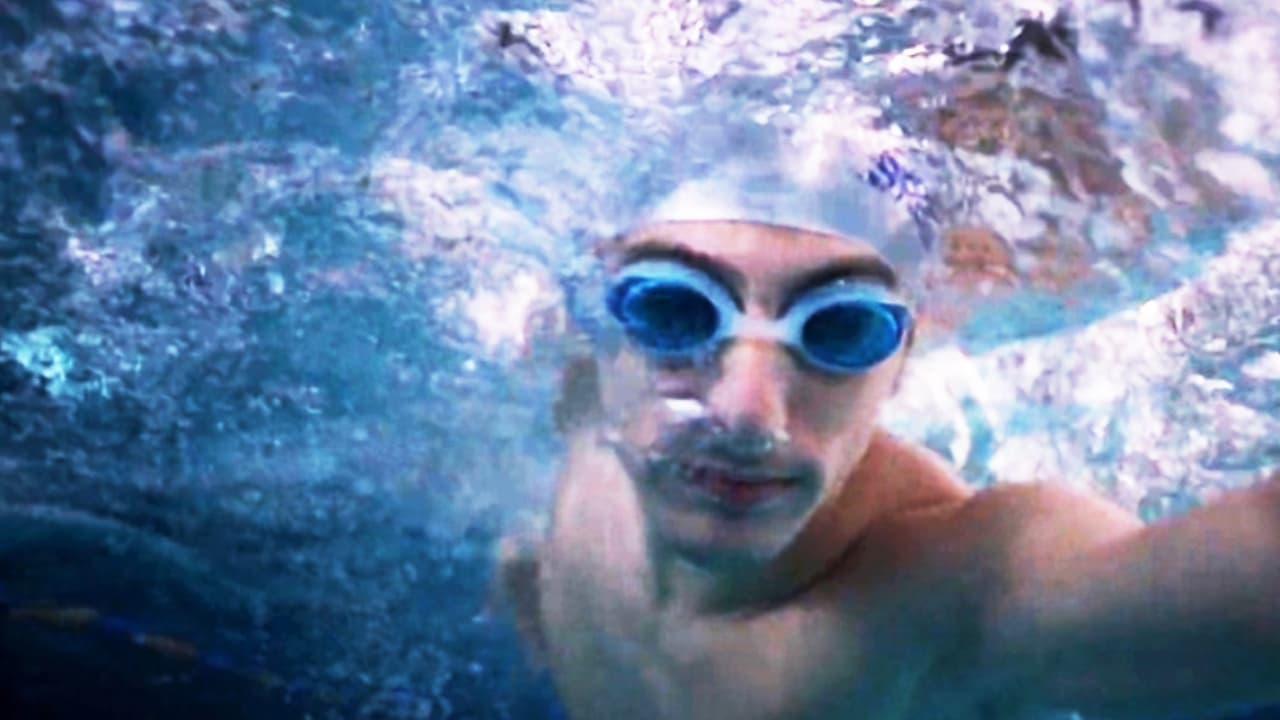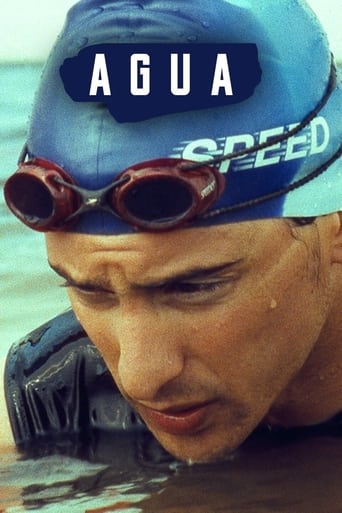



Very very predictable, including the post credit scene !!!
View MoreMost undeservingly overhyped movie of all time??
a film so unique, intoxicating and bizarre that it not only demands another viewing, but is also forgivable as a satirical comedy where the jokes eventually take the back seat.
View MoreI think this is a new genre that they're all sort of working their way through it and haven't got all the kinks worked out yet but it's a genre that works for me.
View MoreAnother narrative feature with a semi-documentary approach, Agua skillfully (Water) blends footage of actual competition and high quality training swimming with dramatized scenes of the two principals, Chico (a determined pool swimmer) and Goyo (an outdoor long-distance swimmer). Both have arrived at moments of trial and uncertainty in their lives when the intensity of their dedication has left them ill equipped to deal with anything else and totally bereft when the sport lets them down.Chino Bengoechea (Nicolás Mateo) is the younger one. He has a pregnant wife, Luisa (Jimena Anganuzzi), and was an orphan who grew up with his coach Roque (Pablo Testa) as his family and virtually lived at the pool throughout his youth. Goyo Blasco (Rafael Ferro), a man in his mid-thirties who was dubbed by local fans "Il Tiberon del Rio," The River Shark, is an ex-champion in the famous local marathon swim disgraced when after winning he was disqualified for doping. Returned to Santa Fe after an eight-year sojourn in the desert, Goyo cannot reconcile with his ex-wife, Maria (Gloria Carra), and their daughter doesn't even know he exists. For one reason or another, neither Chino nor Goya has much else besides swimming,and that, unfortunately, includes the women in their lives.Agua superbly captures the beauty of swimming, the physical perfection of competition swimmers, the symmetry and grace of their movements, and the feel of the water itself as few films have done, using an austere, largely wordless approach that lets the water and the bodies speak for themselves. The sparingly used underwater photography is exceptional. No music, just the sound of water from inside it: "Time .rhythm reach time reach time turn " Chino's voice-over speaks during one particularly nice passage. These moments are like a meditation. Chino's brief voiceovers comment occasionally on where his life is at successive moments. They keep his viewpoint a constant presence, but are understated.The film shows the uncertainty of almost everything else about the two men's lives because the discipline of their training has left them ill suited for other concerns and responsibilities. Agua conveys the tension and extreme focus of a match, the way the admonitions and warnings of the coach ring out in the ears of the young team members with the intensity of Moses delivering the Ten Commandments.Chen's film is distinguished by a certain rhythm, which might be defined by the regular contrast between the comforting (but also a little scary) silence under water, on the one hand, and the cacophonous echoes above at a big pool, on the other. A heartbeat sound against silence is stopped when the camera cuts to handlers above watching the swimmers, with the splashes of the water, the shouts, the echoes, and we go back and forth. This is nothing unusual in itself, but Agua does it with unusual simplicity and clarity and the underwater images are particularly nice because they are so straightforward, nothing tricky. In the earlier swim sequences, the eye gets a chance to grasp and savor the rhythm of the strokes; in the later ones, we get closer to the swimmer himself, his semi-blind concentration, his breathing, his immersion.In the competition he's been training for, Chino is badly defeated by the champion and comes in fourth, so no Santa Fe swimmers qualify for the national team. He knows he ought to focus on Luisa and the coming baby now, but he can't. Nothing seems to matter any more. For him, success in international competition might have been a bridge out of poverty. We see him go to work carrying carcasses in a slaughterhouse, and Goyo is urged by an old mentor to train for the Santa Fe-Coronda Marathon again, told he ought to have won it: he did win it, but the title was taken away for use of a forbidden substance. And so Goyo decides to compete in the Santa Fe-Coronda Marathon, a 57 kilometer river swim (a real race) again, and Chino is eventually prevailed upon to man a backup boat for him in the race.The film spares us Goyo's training and skips straight to his competition. Here, the filming of Goyo's swimming becomes more intense and expressionistic, close up on his head with no sound but his almost gasping intakes of air on each downstroke and the splash of the water around his arms followed by almost abstract close-ups from under water that express Goyo's complete mindless abandon to the effort. You couldn't get much closer to a competition swimmer than the film does at this point. "He is an animal," Chino has observed in voice-over earlier. "He is not aware of his body." Chino's approach is more self conscious and hence less total. Little problems that come up along the way heighten the intensity and bring Chino and Goyo into a symbiotic relationship.The beauty of a documentary approach to narrative feature which is partly at work here is that settings and contexts are allowed to speak for themselves. The drawback is that we may lose a sense of urgency about the characters. That hardly happens here, with the focus on competition. But the competition isn't the end of the film, which is unconventional and elegant in style yet totally accessible. In the end, it isn't about the competition. In some sense, though, a baton has been passed.A winner.Shown as part of the San Francisco International Film Festival 2007.
View MoreGorgeous. Pure cinema. One of the best films in Argentine Cinema in the past 20 years. Its vision reflects the maturity of an author. With AGUA Argentine Cinema begins to be written in capital letters. Far from its previous naturalism and "poor cinema" we enter a domain which belongs to cinema alone. A revolutionary approach on filming. No conventionalisms from beginning to end. Luxurious in image. Construction of sound incredible. The narration brings the two principal characters together by a crash, and this will mark forever a so subtle relationship where more and more they dive into a world of solitude, but exhibiting their skin as metaphor. A film that is a universal must!
View More